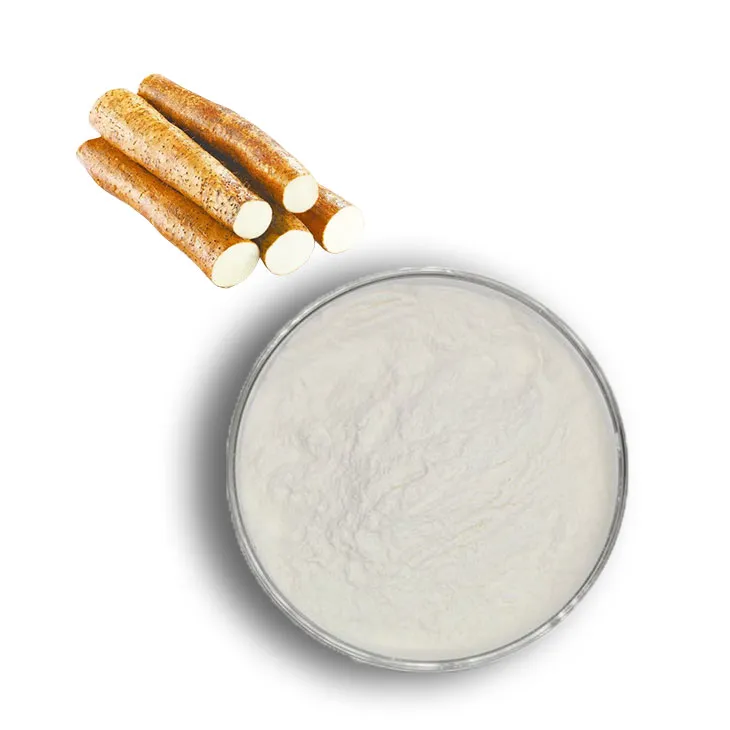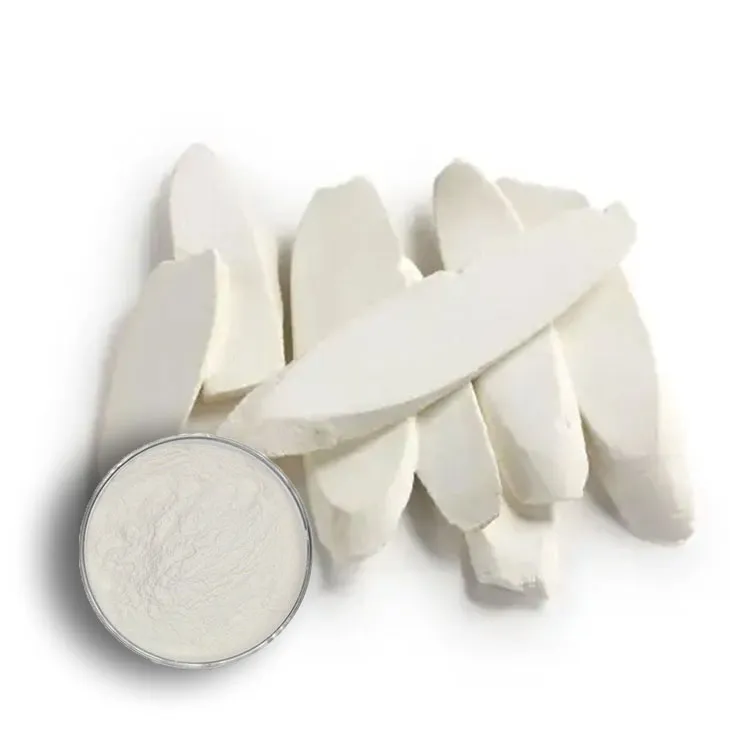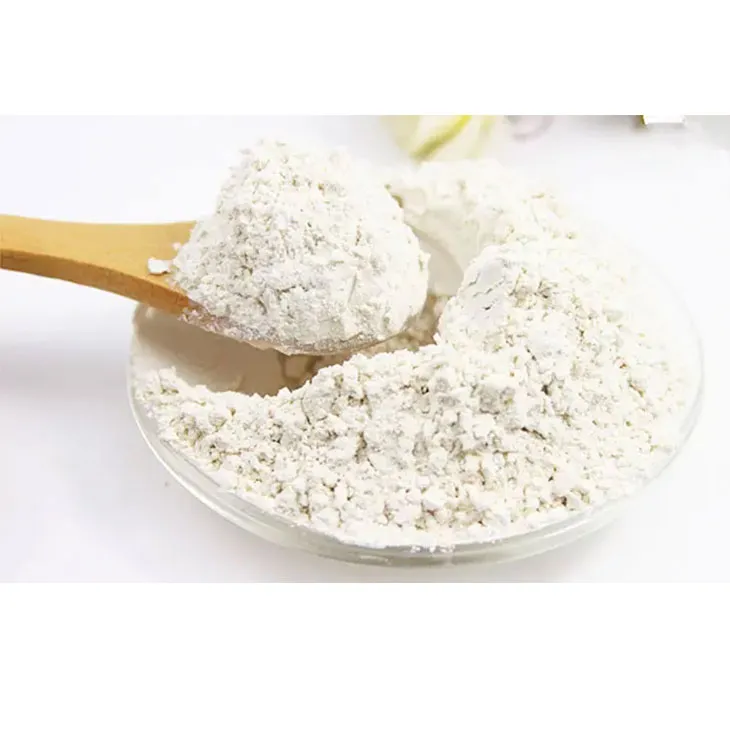- 0086-571-85302990
- sales@greenskybio.com
Is yam extract beneficial for diabetes? Are these all safe and applicable for diabetic patients?
2024-11-13

1. Introduction
Diabetes is a chronic metabolic disorder that affects millions of people worldwide. Management of diabetes often involves a combination of lifestyle changes, medications, and sometimes, natural remedies. Yam Extract has been a subject of interest in the context of diabetes management. This article aims to explore whether Yam Extract can be beneficial for diabetes patients and to comprehensively assess its safety.

2. Scientific Research Findings on Yam Extract and Diabetes
2.1. Blood Glucose Regulation
Several scientific studies have investigated the effects of yam extract on blood glucose levels. Some research has suggested that certain compounds in yam extract may have a hypoglycemic effect. For example, yam contains diocosahexaenoic acid (DHA) and eicosapentaenoic acid (EPA), which are known to play a role in metabolic regulation. In animal studies, it has been observed that yam extract supplementation led to a reduction in blood glucose levels. However, it is important to note that animal studies may not always directly translate to human applications.
2.2. Insulin Sensitivity
Improving insulin sensitivity is crucial for diabetes management. There is evidence to suggest that yam extract may enhance insulin sensitivity. Components in yam, such as polyphenols and dietary fiber, are thought to be involved in this process. Polyphenols have antioxidant properties and may help protect pancreatic beta - cells, which are responsible for insulin production. Dietary fiber in yam can slow down the absorption of carbohydrates, thereby reducing the post - prandial blood glucose spike and potentially improving insulin sensitivity over time. But more human - based clinical trials are needed to confirm these effects.

3. Possible Mechanisms of Action
3.1. Effects on Carbohydrate Metabolism
Yam extract may influence carbohydrate metabolism in multiple ways. As mentioned earlier, the dietary fiber in yam can physically impede the rapid digestion and absorption of carbohydrates. This leads to a more gradual release of glucose into the bloodstream, preventing sudden spikes in blood sugar levels. Additionally, certain bioactive compounds in yam may interact with enzymes involved in carbohydrate breakdown, such as alpha - amylase and alpha - glucosidase. By inhibiting these enzymes, yam extract can further slow down the conversion of complex carbohydrates into simple sugars, thereby helping to regulate blood glucose levels.
3.2. Impact on Lipid Metabolism
Diabetes is often associated with abnormal lipid metabolism. Yam extract has shown potential in improving lipid profiles. The omega - 3 fatty acids present in yam, like DHA and EPA, can reduce triglyceride levels and increase high - density lipoprotein (HDL) cholesterol, which is known as the "good" cholesterol. By improving lipid metabolism, yam extract may contribute to overall metabolic health in diabetes patients. This is because abnormal lipid levels can lead to insulin resistance, and by normalizing lipids, it may indirectly enhance insulin sensitivity.

4. Considerations for Different Patient Conditions
4.1. Type 1 Diabetes
Type 1 diabetes is characterized by the autoimmune destruction of pancreatic beta - cells, resulting in a lack of insulin production. While yam extract may not replace insulin therapy for type 1 diabetes patients, it could potentially play a complementary role. For example, its ability to regulate blood glucose levels through other mechanisms, such as carbohydrate and lipid metabolism, may help in better overall diabetes management. However, patients should be cautious as any addition to their treatment regimen should be done under the supervision of a healthcare provider. Since type 1 diabetes requires strict insulin management, any factor that may affect blood glucose levels needs to be carefully monitored.
4.2. Type 2 Diabetes
Type 2 diabetes is mainly associated with insulin resistance and relative insulin deficiency. Yam extract seems more promising in the context of type 2 diabetes. Its potential to improve insulin sensitivity and regulate blood glucose levels through various mechanisms aligns well with the pathophysiology of type 2 diabetes. However, individual responses may vary. Some patients may experience significant benefits, while others may not respond as well. Also, factors such as diet, physical activity level, and concurrent medications need to be considered. For instance, if a patient is already taking medications to lower blood glucose, there could be potential interactions between the yam extract and these drugs.

5. Safety of Yam Extract for Diabetic Patients
5.1. General Safety
Yam is a widely consumed food in many cultures, and in general, yam extract is considered safe for most people when consumed in moderation. However, some individuals may be allergic to yam, and in such cases, yam extract should be avoided. Symptoms of yam allergy can include skin rashes, itching, swelling, and in severe cases, difficulty breathing. It is important to note that even though yam is a natural product, it does not mean it is completely without risks.
5.2. Interaction with Medications
As mentioned earlier, there is a possibility of interaction between yam extract and diabetes medications. For example, if yam extract has a hypoglycemic effect, combining it with other blood - glucose - lowering drugs may lead to an excessive drop in blood glucose levels, which can be dangerous. This is especially concerning for patients on insulin or other potent hypoglycemic agents. Therefore, diabetic patients who are considering using yam extract should inform their healthcare providers about their intention to ensure proper monitoring and to avoid potential adverse effects.
6. Conclusion
In conclusion, yam extract shows potential benefits for diabetes patients, particularly in terms of blood glucose regulation and improvement of insulin sensitivity. The possible mechanisms of action involve effects on carbohydrate and lipid metabolism. However, its safety and applicability vary depending on different patient conditions. While it may be a promising natural remedy, it is crucial that diabetic patients consult their healthcare providers before using yam extract, especially considering the potential for allergies and interactions with medications. More research, especially large - scale human clinical trials, is needed to further clarify the exact benefits and risks of yam extract in diabetes management.
FAQ:
1. What is yam extract?
Yam extract is a substance derived from yams. Yams are tuberous root vegetables, and the extract is obtained through various extraction methods. It may contain different bioactive components such as polysaccharides, proteins, and other substances that could potentially have an impact on health, including in relation to diabetes.
2. How might yam extract be beneficial for diabetes?
Some scientific research suggests that yam extract may have benefits for diabetes. For example, certain compounds in yam extract, like polysaccharides, may help regulate blood sugar levels. They might enhance insulin sensitivity, which means the body can use insulin more effectively to lower blood glucose. Additionally, yam extract may have antioxidant properties that can reduce oxidative stress, which is often associated with diabetes and its complications.
3. Are there any potential risks or side effects of yam extract for diabetic patients?
While yam extract may seem promising, there could be potential risks. Some people may be allergic to components in yam extract, which can cause allergic reactions. Also, if taken in excessive amounts, it may interact with other medications that diabetic patients are taking. For example, it could potentially interfere with the action of diabetes medications, either enhancing or reducing their effectiveness in unexpected ways. However, more research is needed to fully understand these potential interactions and risks.
4. How should diabetic patients use yam extract?
Before using yam extract, diabetic patients should consult their healthcare providers. If it is deemed safe to use, it should be used according to recommended dosages. It's important not to self - medicate or exceed the recommended amount. It can potentially be incorporated into the diet in the form of supplements or as an ingredient in certain foods, but again, this should be done under medical supervision, especially considering the individual's overall health condition and other medications being used.
5. Does the effectiveness of yam extract vary among different types of diabetes?
There is a possibility that the effectiveness of yam extract may vary among different types of diabetes. For type 1 diabetes, where the body does not produce insulin, yam extract may still have some benefits in terms of managing blood sugar levels through improving insulin sensitivity and reducing oxidative stress. In type 2 diabetes, which is often related to insulin resistance, the potential of yam extract to enhance insulin sensitivity may play a more prominent role. However, research in this area is still limited, and more studies are needed to clarify these differences.
Related literature
- The Potential Role of Yam Extract in Diabetes Management: A Review"
- "Yam Extract and Its Impact on Blood Glucose Regulation in Diabetic Patients"
- "Safety and Efficacy of Yam - based Supplements in Diabetes Mellitus"
- ▶ Hesperidin
- ▶ citrus bioflavonoids
- ▶ plant extract
- ▶ lycopene
- ▶ Diosmin
- ▶ Grape seed extract
- ▶ Sea buckthorn Juice Powder
- ▶ Beetroot powder
- ▶ Hops Extract
- ▶ Artichoke Extract
- ▶ Reishi mushroom extract
- ▶ Astaxanthin
- ▶ Green Tea Extract
- ▶ Curcumin Extract
- ▶ Horse Chestnut Extract
- ▶ Other Problems
- ▶ Boswellia Serrata Extract
- ▶ Resveratrol Extract
- ▶ Marigold Extract
- ▶ Grape Leaf Extract
- ▶ blog3
- ▶ Aminolevulinic acid
- ▶ Cranberry Extract
- ▶ Red Yeast Rice
- ▶ Red Wine Extract
-
Black Pepper Extract
2024-11-13
-
Sea buckthorn oil
2024-11-13
-
Almond Extract Powder
2024-11-13
-
Medicinal Marshmallow Extract
2024-11-13
-
Genistein
2024-11-13
-
Kidney Bean Extract
2024-11-13
-
Hawthorn powder
2024-11-13
-
Epimedium extract powder
2024-11-13
-
Thunder God Vine Extract
2024-11-13
-
Chaste Berry Extract
2024-11-13





















